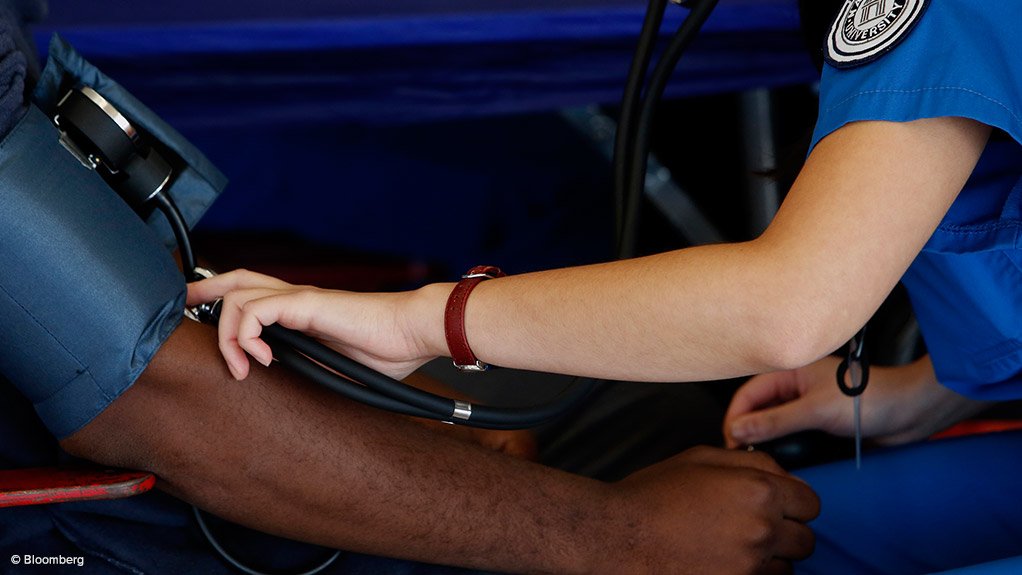/ MEDIA STATEMENT / The content on this page is not written by Polity.org.za, but is supplied by third parties. This content does not constitute news reporting by Polity.org.za.
The Health & Other Service Personnel Trade Union of South Africa (Hospersa) is calling for greater commitment to the health and safety of health workers on the commemoration of International AIDS Day. While the Union celebrates the strides made in addressing the AIDS pandemic, it recognises that there are still serious shortcomings in the already embattled South African health system leading to great risks being faced by workers in the health sector.
The massive scale at which health workers are expected to deliver HIV and tuberculosis (TB) services places them at exceptional risk for their own health and safety. In fact, World Health Organisation (WHO) research shows that health workers face up to 8 times the normal risk of TB infection when compared to the general population. The gains on the AIDS programme certainly seem to have been at the expense of the safety of health workers. This is confirmed by the Department of Health as recorded from the Department of Labour inspections. A Section 7 notice was issued by the Chief Inspector for Labour to the Ministry of Health to develop a national policy, to protect its employees.
“On this World AIDS Day, Hospersa appeals to employers of health workers to fulfil their obligations to protect their employees and reduce the risks they face and inadvertently pass on to patients,” said Hospersa General Secretary Noel Desfontaines. “We also call on the Department [of Health] to engage proper processes to finalise the Human Resource for Health Strategy as a matter of urgency to expand the health workforce appropriately to cater for the massive service expansions. This will have to include the formal inclusion of community health workers in the health system,” continued Desfontaines.
As South Africa ticks the achievements on the AIDS scorecard over the last decade and a half, Hospersa salutes the unsung heroes, the thousands of health workers in hospitals, clinics, mobiles, laboratories, dispensaries, Non-Governmental Organisations (NGOs) and Community-Based Organisations (CBOs) who have worked tirelessly to move the disease from a death sentence to a manageable chronic disease. This has been possible through significant shifts in policies and programmes at an alarming pace over the years.
However, Hospersa insists that these policy interventions and programmes now require rapid adjustment to address the resilience and respond to the strain taken by the health workforce. The pressure on the health system as a whole and particularly on health workers will increase dramatically over the next four years as South Africa aims to meet the bold new targets for the Universal Test and Treat (UTT) strategy of the Joint United Nations Programme on HIV/AIDS (UNAIDS), the so-called 90-90-90 strategy. Hospersa is calling on government to increase the number of HIV infected persons on sustained anti-retroviral (ARV) treatment from 3,5 million in 2016, to 6,3 million people in 2020. This will translate to 90% of the 7 million infected persons in South Africa, which means an almost doubling of the service currently rendered.
“We must also note that this refers to an increase in one element of the programme, whilst equal attention must be given to other prevention strategies, such as massive scale-up of medical male circumcision and addressing the issues of mother-to-child transmission, sexually transmitted infections and TB programmes,” said Desfontaines.
“Until health workers have access to proper occupational health services, routine health screening, and until they can easily and confidentially access their own HIV and TB treatment and support services, we will certainly impede the realisation of the ambitious 90-90-90 targets,” he argued.
“Hospersa remains committed to the struggle for decent and safe work for all, and we therefore call on employers in the health sector to avail sufficient human, financial and structural resources to strengthen a health system buckling under exceptional pressure. This, however, must be done with meaningful consultation with the health workers themselves in order to ensure ultimate success and long-term sustainability,” concluded Desfontaines.
Issued by Hospersa
EMAIL THIS ARTICLE SAVE THIS ARTICLE
To subscribe email subscriptions@creamermedia.co.za or click here
To advertise email advertising@creamermedia.co.za or click here











